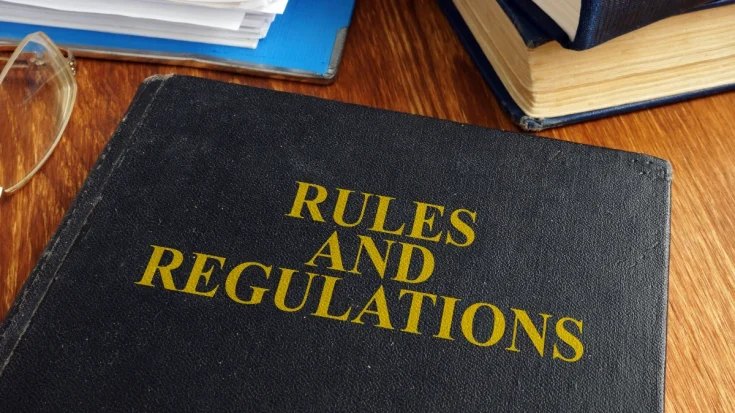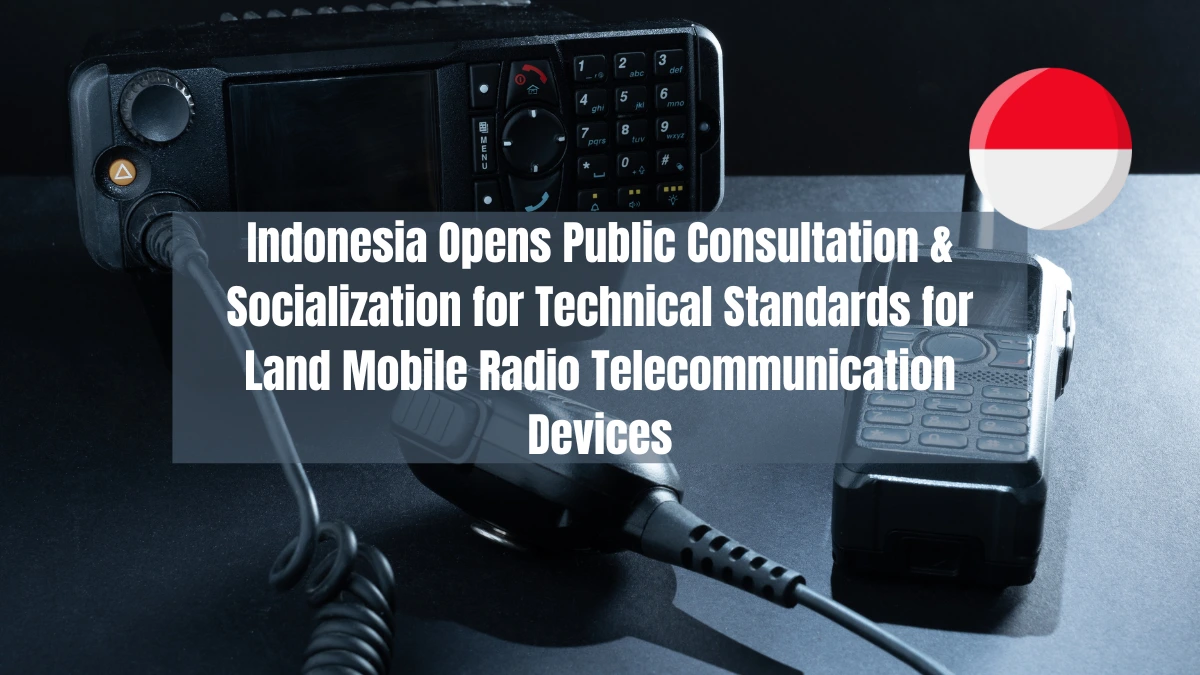The Ministry of Communications and Digital (KOMDIGI) of Indonesia opened a public consultation and socialization for Technical Standards for Land Mobile Radio Telecommunication Devices for Directorate General of Digital Infrastructure (DJID) certification.
The information about public consultation and socialization for Technical Standards for Land Mobile Radio Telecommunication Devices is announced on the official website of the DJID on July 18, 2025.
The socialization of the draft for Technical Standards for Land Mobile Radio Telecommunication Devices requires public participation. This needs to be done following the mandate of Article 46 of Law Number 30 of 2014 concerning Government Administration, where government agencies provide socialization to interested parties before stipulating decisions.
Technical Standards for Land Mobile Radio Telecommunication Devices Prescribed

The Draft Ministerial Decree on Technical Standards for Land Mobile Radio Telecommunication Devices was made because the current standards are no longer in line with technological developments and need to be replaced. The following are matters related to the new technical standards:
- Updating EMC requirements following international standards CISPR 32 or ETSI EN 301 489;
- Updating electrical safety requirements following IEC 60950-1 or IEC 62368-1;
- Land Mobile Radio devices are divided into 3 types of devices, including conventional radio devices, trunking radio devices, and private mobile radio devices;
- Conventional and trunking radio devices are divided into 4 groups, namely handheld, mobile, base/repeater, and radio modem;
- Restriction of device working frequency from wide (e.g. previously UHF devices were allowed to have working frequencies of 300 – 3000 MHz), to be adjusted to the allocation according to TASFRI and the prevalence of devices produced by vendors (e.g. in this RKM, UHF devices are allowed to have working frequencies of 300 – 470 MHz only, so 450 – 512 MHz devices are not allowed);
- Test parameters are limited to parameters that are able to avoid harmful interference, including working frequency, channel spacing, conducted output power, spurious emissions, and frequency errors/frequency stability. Other test parameters are deleted, including temperature, impedance, and modulation; and
- Addition of test methods according to international standards.
Read More for the Draft
Technical Standards that No Longer Apply
The draft of the new Land Mobile Radio Telecommunication Device Technical Standards will replace the technical standards related to land mobile radio telecommunication devices previously stipulated through:
- Decree of the Director General of Posts and Telecommunications No. 003/DIRJEN/1996 on Technical Requirements for Analog Trunking Terminal Devices;
- Decree of the Director General of Posts and Telecommunications No. 84/DIRJEN/1999 on Technical Requirements for SSB-HF/VHF/UHF Radio Communication Devices;
- Decree of the Director General of Posts and Telecommunications No. 270/DIRJEN/2001 on Technical Requirements for Trunking Radio Base Stations;
- Decree of the Director General of Posts and Telecommunications No. 168/DIRJEN/2002 on Technical Requirements for Digital Trunking Radio Equipment and Devices;
- Regulation of the Director General of Posts and Telecommunications No. 209/DIRJEN/2008 on Technical Requirements for Modem Radio Equipment and Devices; and
- Regulation of the Director General of Posts and Telecommunications No. 171/DIRJEN/2009 on Technical Requirements for HF, VHF, and UHF Communication Radio Equipment and Devices.
When is the KOMDIGI Public Consultation Held?

The public is allowed to submit feedback on KOMDIGI’s Draft about Technical Standards for Land Mobile Radio Telecommunication Devices to improve the existing draft.
The public consultation has been opened and will be held until August 3, 2025. The public can submit input or responses to DJID through electronic mail addressed to tomuha115@komdigi.go.id, muha405@komdigi.go.id, aria001@komdigi.go.id, and siti028@komdigi.go.id.

